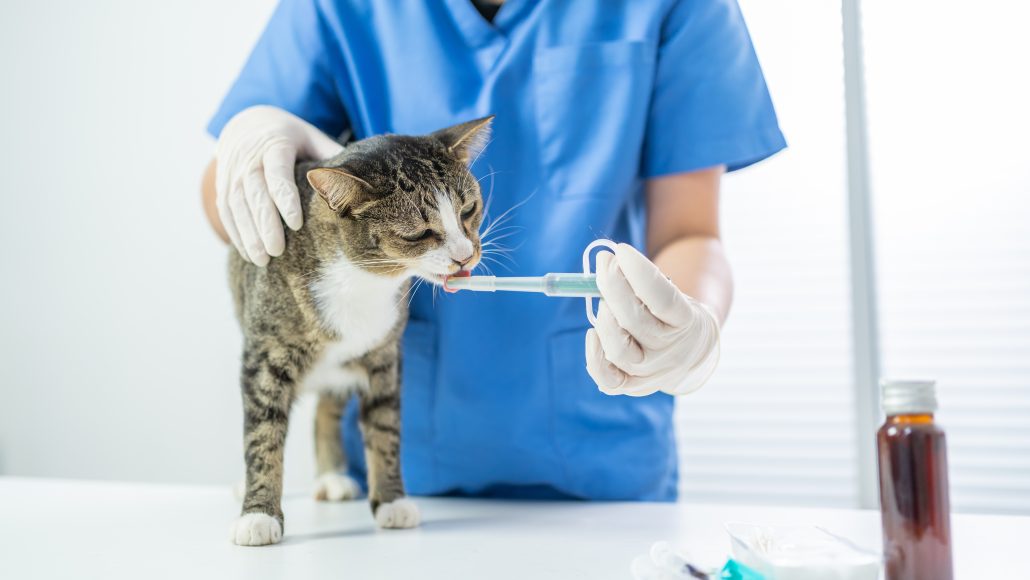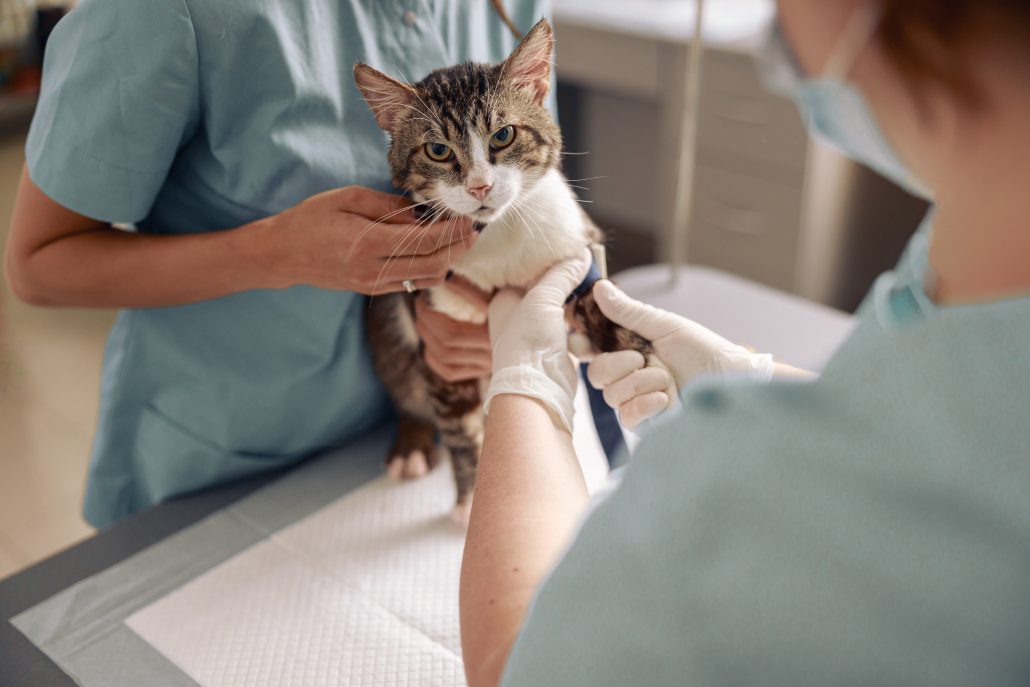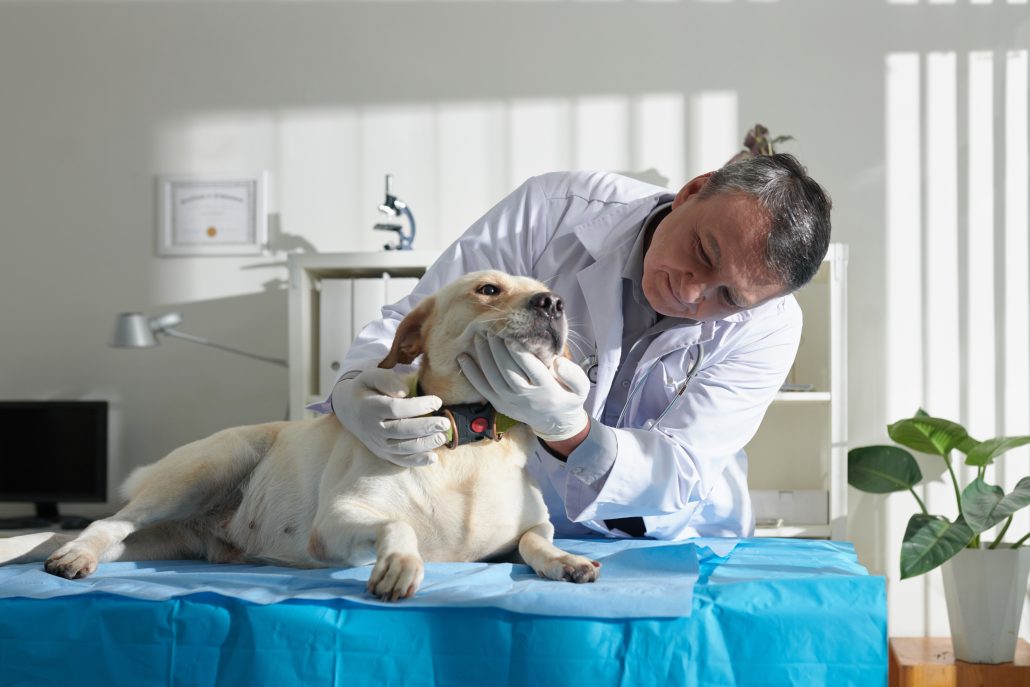Is your furry friend constantly scratching, biting, or rubbing their skin against furniture? If so, your pet may be suffering from allergies. Fortunately, pet allergies are a common problem that affects dogs and cats of all breeds, ages, and sizes that can be both treated and relieved.
In this article, we will discuss the tell-tale signs and symptoms of pet allergies, explore their underlying causes, and provide you with invaluable tips on how to soothe your pet’s discomfort and effectively manage their allergies at home. So, read on to discover more about this common issue that affects our beloved companions.

Understanding the Different Types of Pet Allergies
An allergy refers to the over-reactivity of the immune system to a particular substance or allergen. Typically, the immune system protects our pets against infection and disease. However, with allergies this immune response can be harmful.
Pet allergies generally fall into three categories: flea allergy dermatitis, food allergies, and environmental allergies, each of which affect our pets in different ways.
Environmental Allergies
Environmental allergies are caused by exposure to various environmental triggers like pollens, dust mites, mould spores, or certain grasses.
Allergens are typically inhaled or come into contact with the skin causing itching, sneezing, watery eyes, nasal congestion, coughing, and skin inflammation.
These allergies often exhibit seasonal patterns or can be present year-round, depending on the allergen.
Food Allergies
Certain ingredients in your pet’s diet can trigger food allergies. Common culprits include proteins such as beef, chicken, dairy products, and grains like wheat or soy.
Pets with food allergies may experience a range of symptoms, including itching, vomiting, diarrhoea and recurrent ear infections.
Identifying the specific allergen through an elimination diet or allergy testing is helpful for managing food allergies effectively.
Flea Allergy Dermatitis
This type of allergy is provoked by the saliva of fleas that causes itching and irritation on the skin. Even a single flea bite can trigger an immune response in sensitive pets.

Common Signs and Symptoms of Pet Allergies
Allergies can manifest in a number of ways, making them challenging to identify and diagnose. Pets are also known to hide their discomfort, making it even more important to be vigilant and recognise the signs and symptoms that may indicate your furry friend is experiencing an allergic reaction.
The most common indications of pet allergies include:
- Persistent itching and scratching, often accompanied by visible signs of redness and inflammation on the skin.
- Biting or excessive licking of certain areas of the body, attempting to alleviate the itchiness or discomfort caused by the allergy.
- Hair loss or thinning of fur in specific spots due to intense grooming or self-inflicted trauma prompted by the allergy.
- Ear infections, which can be evidenced by head shaking, a strong odour from the ears, and general discomfort in that area.
- Respiratory symptoms such as a runny nose, sneezing, or even wheezing and coughing.
- In severe cases, pets may experience breathing difficulties, including panting, gasping, or throat swelling, which requires immediate veterinary attention.
Testing & Diagnosing: Does My Pet Need To See The Vet?
It is important to remember that many of the symptoms of pet allergies can overlap with those of other health conditions. If you suspect that your pet is suffering from allergies, it’s best to consult with your veterinarian.
They will perform a physical examination and may recommend allergy testing, such as a skin or blood test. Their expertise and guidance will help you find an accurate diagnosis and develop an appropriate treatment plan tailored to your pet’s specific needs. With their support, you can alleviate your pet’s discomfort, enhance their quality of life, and ensure their overall well-being.

Treating Pet Allergies
There are a number of ways to treat, manage and relieve the symptoms of allergies in your pet. These include:
Identify and remove allergens from their environment
This could mean removing certain plants, switching to a different type of litter or bedding, or using air filters to reduce dust and other allergens in the air.
Regular grooming
Bathing your pet regularly and brushing their coat can help alleviate skin irritation, swelling, and itching. Be sure to use a pet-friendly shampoo and brush, and avoid over-bathing, as this can dry out their skin and exacerbate the problem.
Improved diet
Certain ingredients in your pet’s diet may trigger allergic reactions. Switching to a hypoallergenic or limited-ingredient diet may help alleviate their symptoms. Be sure to consult with your veterinarian to ensure your pet is receiving all the necessary nutrients.
Medication
Your veterinarian may prescribe medication to help alleviate your pet’s symptoms, such as antihistamines or steroids.

Need Help managing Your Pet’s Allergies?
Pet allergies can be a frustrating and uncomfortable problem for both you and your furry friend. However, with proper diagnosis and treatment, you can help alleviate their symptoms and help them live a happy and healthy life.
If you are looking for a local, trusted vet expert in Brisbane, consider The House Call Vet. We understand the impact of allergies on pets and offer a comprehensive range of services to address these concerns. Don’t let pet allergies hinder your pet’s well-being any longer. Contact The House Call Vet today to schedule an appointment and take the first step towards a happier, healthier life for your furry friend.

